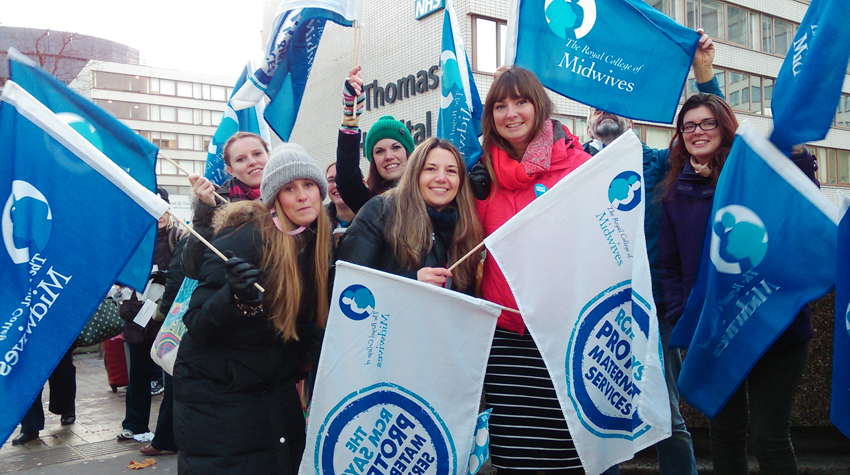THE Royal College of Midwives is warning of a worsening maternity crisis as a senior midwife survey shows services at boiling point.
‘The maternity crisis we warned about is here.’ That’s the message from the Royal College of Midwives (RCM) as a survey of UK senior midwives says they are relying significantly on the goodwill of staff working extra hours to ensure safe services.
The finding paints a stark picture of chronic workforce shortages and challenges, with maternity services often only functioning safely because of staff working long and additional hours, often unpaid.
It also shows a service haemorrhaging midwives at an alarming rate. The loss of experienced midwives is also impacting on the ability to support and train student midwives on their placements in the NHS.
‘They are leaving because they cannot deliver the quality of care they so desperately want to, because of their falling pay, and because they are exhausted, fragile and burnt-out,’ says the RCM.
Responses to the survey of directors and heads of midwifery (DoM/HoM) across the UK paint a stark picture of the maternity crisis as services struggle to staff units and recruit and retain midwives.
The survey results underline the seriousness of the situation with 78% of respondents saying it was difficult or very difficult to ensure staff take their breaks and leave work on time.
The RCM is balloting members in Northern Ireland from 31 January on the 2022/23 pay award.
Participation in the process for 2023/24 does not mean that 2022/23 pay dispute is settled or that the outcome of the process will be accepted by RCM members, the survey says.
The average midwife has lost around £56,000 in real earnings since 2008, according to the TUC due to pay stagnation and freezes, and inflation is currently in double digits.
In a direct message to the Westminster government the RCM says it remains ready to enter into negotiations.
Dr Suzanne Tyler, RCM Executive Director, Trade Union, said: ‘Our worst fears about where we saw maternity services heading are becoming a reality and the fault lies squarely at the door of successive Conservative governments.
‘Chronic understaffing is hitting the morale of midwives and maternity support workers (MSW) and the safety of care. They are leaving in droves and the government must plug this worrying leak as a matter of real urgency.
‘Improving pay, more investment and increasing the workforce are crucial to building back our shattered maternity services. The government must do that now and it can start with giving maternity staff the inflation busting pay award they deserve.’
In Scotland, the RCM has not accepted the pay offer there and has a mandate to take industrial action following a formal ballot. It is currently in talks with the Scottish government to seek a solution to these issues.
The RCM will begin balloting members over pay in Northern Ireland next week. RCM members in Wales are set to take strike action on 7 February followed by a week of action short of a strike.
